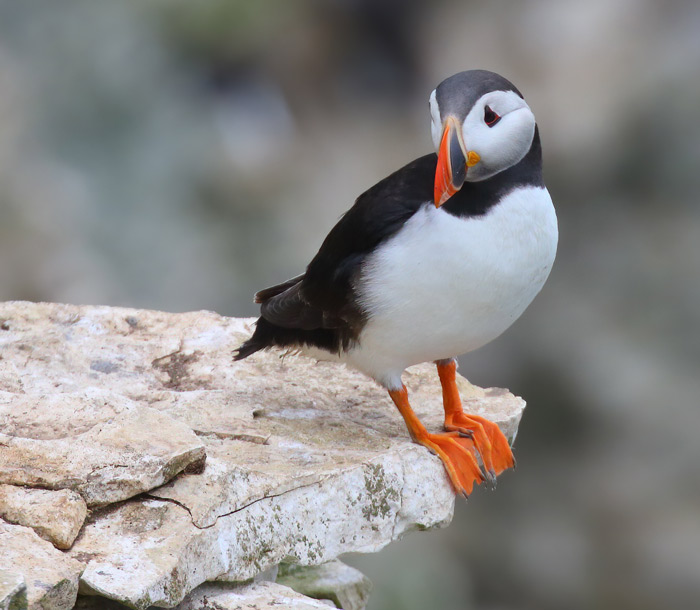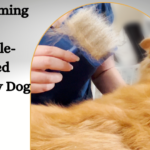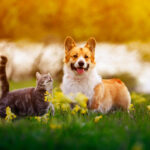
[ad_1]
New Birds of Conservation Concern in Ireland (BoCCI) paper reveals that curlews and corncrakes at the moment are prone to extinction in Ireland – Puffins, kittiwakes and razorbills at the moment are on the Red record, together with kestrels and swifts
Puffins, swifts and kestrels are amongst 23 birds which were moved on to the Red record – regarding species of highest conservation concern – throughout the island of Ireland, in line with a brand new research. The ‘Birds of Conservation Concern in Ireland (BoCCI) 2020-2026’ overview is collectively compiled by RSPB NI and BirdWatch Ireland. This overview makes use of a ‘site visitors gentle’ system to point the conservation standing of fowl species by inserting them on three lists – Red (excessive conservation concern), Amber (medium conservation concern) or Green (low conservation concern). The research’s stark findings present {that a} quarter of fowl species on the island at the moment are Red-listed.
Of the 211 species studied, BoCCI has positioned 54 (25.6%) on the Red record – extra birds than ever earlier than – 79 (37.4%) on the Amber record and 78 (37%) on the Green record).

Puffin, copyright Glyn Sellors, from the surfbirds galleries
There has been an additional catastrophic decline in wading birds, with six extra species (together with snipe) becoming a member of the Red record. Lapwings are one other wading fowl that has suffered declines. When grouped by habitat, upland (50%) and farmland (35%) birds have the best proportions of Red-listed species. Swifts at the moment are Red-listed on account of a decline of their breeding inhabitants.
The BoCCI report was written by Gillian Gilbert and Andrew Stanbury (each RSPB) and by Lesley Lewis (BirdWatch Ireland).
Gillian Gilbert, RSPB NI Principal Conservation Scientist, stated: “It is extraordinarily alarming to see 1 / 4 of fowl species on the island of Ireland now on the Red List.
“It’s unhappy to see swifts and kestrels, amongst different species, dealing with such declines, whereas anybody who has visited the Rathlin West Light Seabird Centre will know and love the puffins, kittiwakes and razorbills on the ocean stacks and will rightly be involved that they’re now on the Red record.
“Because these seabirds are doing poorly throughout Europe and certainly the world over, this makes the birds we now have throughout the island of Ireland crucially vital and we have to do all the pieces we will to guard them.
“Natural ecosystems globally face a myriad of pressures together with local weather change, habitat loss and air pollution, however this report reveals how nature right here is in hassle. Therefore, help for our work and our campaigns calling for targets in regulation to revive our world are extra vital than ever.”
Lesley Lewis of BirdWatch Ireland added: “Sadly, the outcomes of this overview solely go to additional present how nice the biodiversity disaster is. We actually are at a tipping level for our birds and we have to act now. “We want a mixed multilateral method from all sectors together with agriculture, forestry and fisheries, with a powerful lead from governments.
“We know from many locally-led tasks that habitat safety, restoration and creation could make enormous variations, so there’s hope that the present traits may be reversed; if not, what is going to the subsequent evaluation in 5 years present?”
The ever-popular kestrel, recognized for its attribute and conspicuous hovering flight, can also be now on the Red record. Changes in land use and in farming practices have affected their prey, whereas it’s potential that secondary poisoning has taken its toll.
Despite all of the unhealthy information, there are some positives, with 64 species remaining on the Green record. Tufted geese, wigeons and pintails have all moved down from the Red record to the Amber record, whereas nice noticed woodpeckers have expanded their vary throughout Ireland. And robins have gone from the Amber record to the Green record.
“With robins, it’s thought that the extreme climate within the two winters of 2009/10 and 2010/11 led to declines of their numbers and we at the moment are seeing a restoration from that,” stated Gillian Gilbert.
BoCCI is the fourth overview wanting intimately on the standing of birds in Ireland and follows the earlier 2014-2019 research (printed in 2013).
The paper has simply been printed within the newest concern of Irish Birds, BirdWatch Ireland’s annual scientific journal.
The BoCCI record may be seen right here: https://www.rspb.org.uk/our-work/conservation/tasks/birds-of-conservation-concern-ireland/
Source www.surfbirds.com






